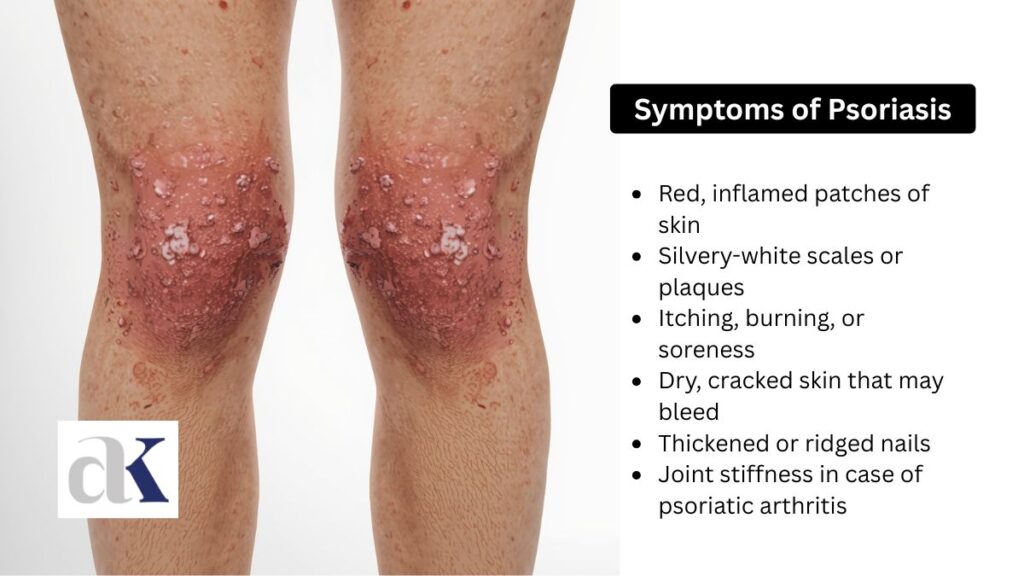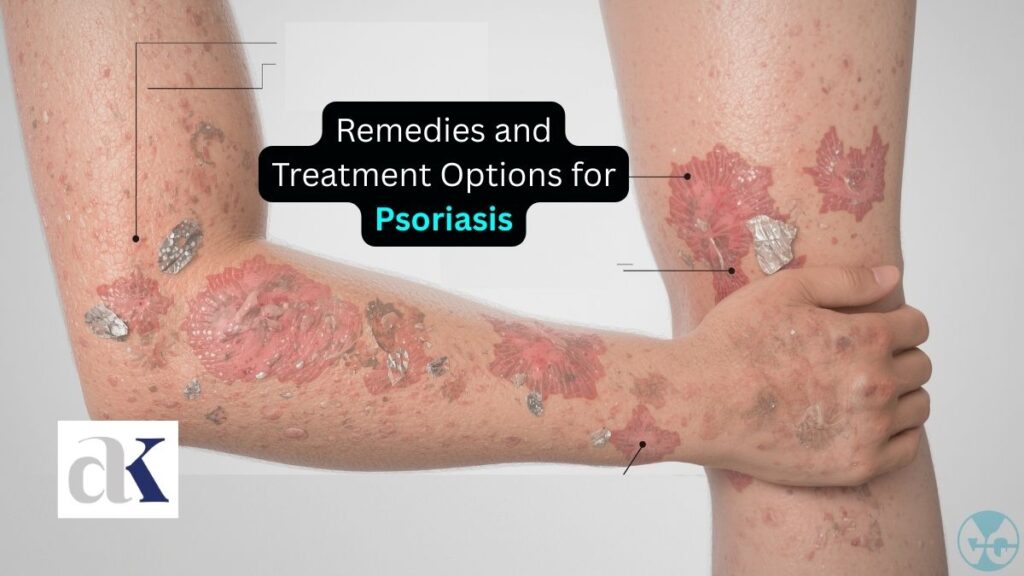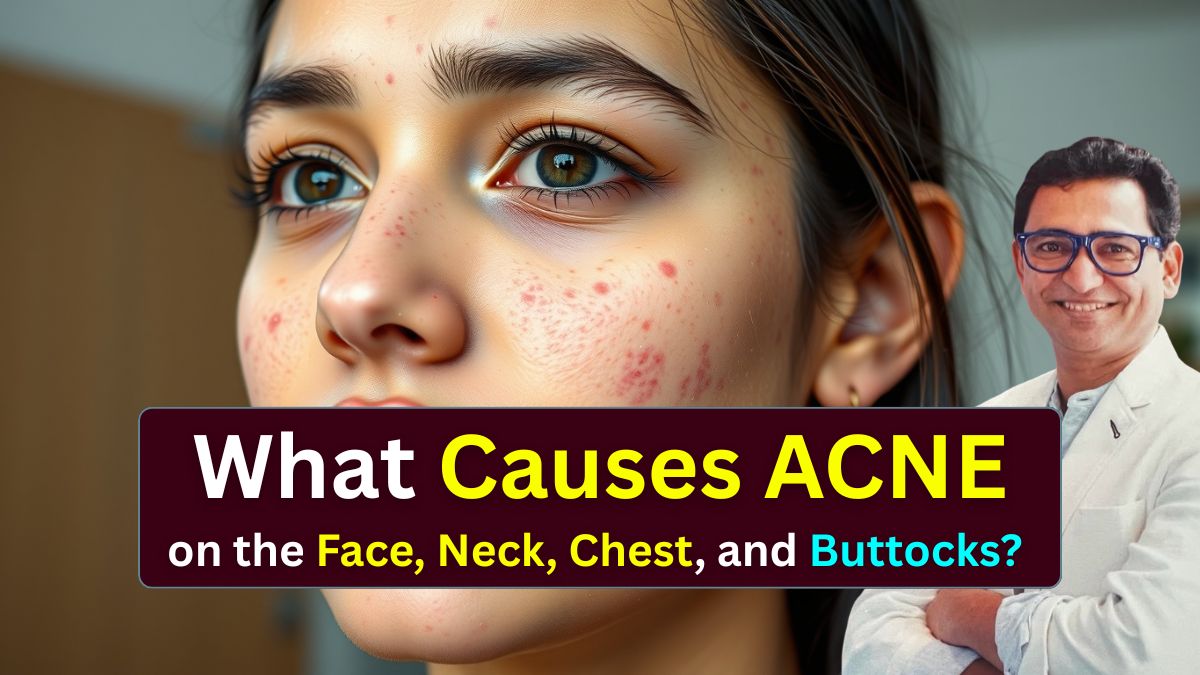Psoriasis is a common yet often misunderstood skin condition that affects millions of people worldwide. It is a chronic disease that not only impacts the skin but can also influence overall health and emotional well-being. Many individuals search for reliable information and effective treatment options, and consulting Dr. Atul Kathed, the best psoriasis doctor in Indore can help in getting the right guidance and long-term relief.
In this article, we will explain what psoriasis is, its symptoms, causes, treatment remedies, and also answer some common questions patients usually ask.
What is Psoriasis?
Psoriasis is a long-term skin disease that occurs when the immune system becomes overactive and speeds up the skin cell cycle. Normally, skin cells grow and shed in about 28 to 30 days, but in psoriasis, this process happens in just 3 to 5 days. As a result, cells build up on the surface of the skin, causing thick, scaly patches that can be itchy, painful, or uncomfortable.
The condition can appear anywhere on the body but is most commonly found on the scalp, elbows, knees, and lower back. Although it is not a life-threatening disease, it can significantly affect daily life, self-confidence, and social interactions. Consulting the best psoriasis doctor in Indore is the right step to manage symptoms effectively and improve skin health.

Symptoms of Psoriasis
The symptoms of psoriasis may vary depending on the type and severity of the condition. Common signs include:
- Red, inflamed patches of skin
- Silvery-white scales or plaques
- Itching, burning, or soreness
- Dry, cracked skin that may bleed
- Thickened or ridged nails
- Joint stiffness in case of psoriatic arthritis
These symptoms may flare up for a few weeks or months and then subside. Triggers such as stress, infections, weather changes, or certain medications often make the condition worse. To get accurate diagnosis and treatment, you should consult the best psoriasis doctor in Indore who can customize a treatment plan according to your condition.
Causes of Psoriasis
The exact cause of psoriasis is not fully understood, but doctors believe it is linked to a problem with the immune system. Instead of protecting the body, the immune system becomes overactive and mistakenly speeds up skin cell growth.
Several factors may trigger psoriasis, such as:
- Genetics (family history of psoriasis)
- Stress and emotional strain
- Skin injuries (cuts, burns, or infections)
- Cold weather or dry climate
- Smoking and alcohol consumption
- Certain medications like beta-blockers or lithium
Since it is a complex condition, treatment may vary from person to person. The best psoriasis doctor in Indore can help identify your specific triggers and suggest remedies that suit your skin type and health needs.

Remedies and Treatment Options for Psoriasis
Although there is no permanent cure for psoriasis, several treatments can help reduce symptoms and improve quality of life. These include:
1. Topical Treatments
Creams and ointments such as corticosteroids, vitamin D analogues, coal tar, and moisturizers can help reduce itching and scaling.
2. Phototherapy
Exposing the skin to controlled amounts of natural or artificial UV light can slow down skin cell growth.
3. Oral and Injectable Medications
In severe cases, doctors may prescribe medications that affect the immune system, such as methotrexate, cyclosporine, or biologics.
4. Lifestyle Remedies
- Keeping skin moisturized
- Reducing stress through yoga and meditation
- Avoiding alcohol and smoking
- Following a healthy diet rich in omega-3 fatty acids
Since every case of psoriasis is unique, it is best to seek guidance from the best psoriasis doctor in Indore who can create a personalized treatment plan to manage flare-ups and maintain healthy skin.
Living with Psoriasis
Living with psoriasis requires patience and consistent care. Flare-ups may happen unexpectedly, and sometimes treatments need to be adjusted. Support from family, friends, and healthcare professionals can help manage both the physical and emotional aspects of the disease.
Visiting the best psoriasis doctor in Indore ensures that patients not only receive medical treatment but also learn coping strategies to manage triggers effectively. Early diagnosis and proper care can make a huge difference in improving skin condition and overall well-being.

FAQs Answered by Dr. Atul Kathed
Q1. What are the symptoms of psoriasis disease?
Dr. Atul Kathed, the best psoriasis doctor in Indore, says: Symptoms include red, inflamed skin patches, silvery scales, itching, dry skin, changes in nails, and sometimes joint pain if psoriatic arthritis develops.
Q2. What is the cause of psoriasis disease?
Dr. Atul Kathed: Psoriasis is mainly caused by an overactive immune system that speeds up skin cell production. Genetics, stress, infections, and certain medications may also trigger it.
Q3. Is psoriasis an autoimmune disease?
Dr. Atul Kathed: Yes, psoriasis is considered an autoimmune disease because the immune system mistakenly attacks healthy skin cells and accelerates their growth.
Q4. Is psoriasis a contagious disease?
Dr. Atul Kathed: No, psoriasis is not contagious. You cannot catch it from touching or being near someone with psoriasis.
Q5. What type of disease is psoriasis?
Dr. Atul Kathed: Psoriasis is a chronic inflammatory skin disease that falls under autoimmune disorders. It requires long-term management but is not life-threatening.
Conclusion
Psoriasis may be a lifelong condition, but with proper care and treatment, it can be effectively managed. Early consultation with the best psoriasis doctor in Indore helps patients control flare-ups, reduce discomfort, and lead a healthier life. If you or someone you know is struggling with psoriasis, timely medical guidance is the first step towards better skin and improved confidence.
















